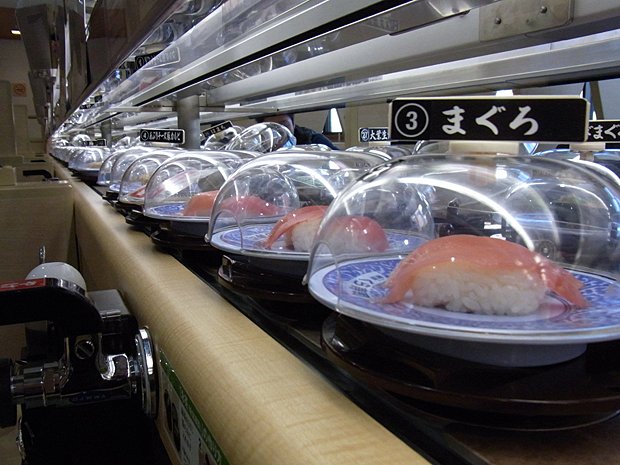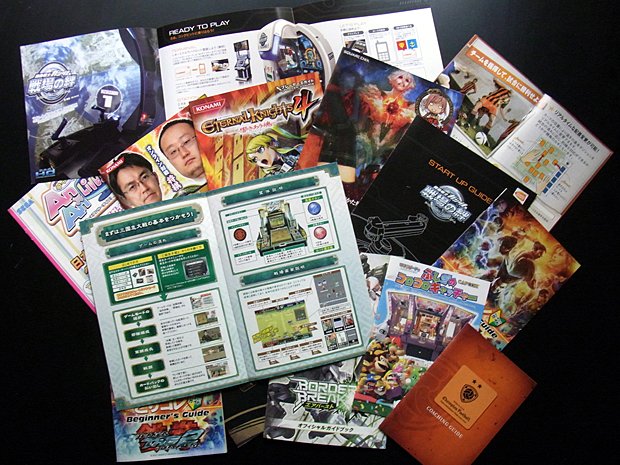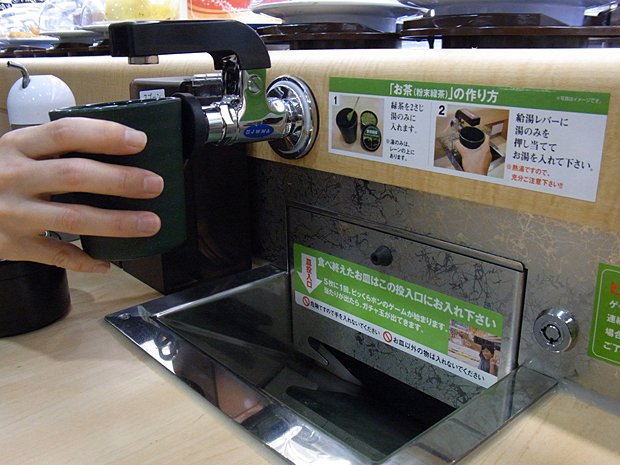Plus Alpha: Playing by the rules
Learning how to do things the Japanese way

Plus Alpha is a weekly column that explores life in Japan from the perspective of American expatriate and game-industry veteran Jarik Sikat. Having worked in numerous areas of the game industry since 1994, Sikat relocated to Japan in 2010.
On a recent Sunday afternoon, I was sitting in the plaza of an outdoor mall, eating a Baskin-Robbins ice-cream cone. To my right, there’s a Domino’s Pizza and a Mister Donut. Behind me are Sports Authority, Toys ‘R’ Us, and a Starbucks Coffee. Over at the Warner Mycal Cinemas, where the lobby is adorned with statues of Superman, Batman and the Looney Tunes characters, they’re screening Captain America: The First Avenger.
Spend enough time in Tokyo and Yokohama, and you’ll see just how pervasive American culture can be. However, Japan’s love for Americana tends to stop just short of videogames.

There have been a lot of arguments in the past as to why Western-developed videogames haven’t reached equal footing with domestically produced content. For game publishers, it’s been an issue they continue to wrestle with. We won’t tackle that discussion again today, but there’s one theory in particular that recently struck a chord.
What comes up from time to time is that Japanese players prefer to have stringent rules and clearly defined boundaries – handholding, if you will. Now, whether that’s true or not, and if that is indeed a factor in choosing Japanese games over foreign ones, it’s difficult to say. But if there’s one thing I can say, it’s that here in Japan, rules always apply. With nearly every situation you encounter, you can bet there’s a set of rules or instructions one must adhere to.
Boarding a train, there’s a system that everyone follows: no one rushes the door. Upon queuing up, passengers form two lines on both sides of the doors, and only after allowing all other passengers to disembark, they enter the train. The process isn’t written out on the platform, but everyone follows the same procedure.

Near our train station, there’s a kaiten zushi restaurant, where the sushi is served on a conveyor-belt system. Before you even set foot into the dining area, a member of the staff is ready to provide you with a tutorial on exactly how the sushi should be taken from the conveyor. When paying for the meal at the register, one doesn’t hand money to the cashier, but places it in a tray. From there the cashier retrieves it. If there’s no tray, I instinctively place the money on the counter.
Sign up to the GamesRadar+ Newsletter
Weekly digests, tales from the communities you love, and more
At many game centers, you’ll find a wealth of instruction manuals. However, I see these as much needed, considering that many of today’s games combine touchscreens, traditional joystick and button controls as well as collectible cards.

One of the most mind-boggling displays of – let’s call it “being told how to play” – I’ve witnessed so far, was at Tokyo DisneySea. Before the start of one of their afternoon shows, theme-park staff stood before the audience and instructed the crowd on exactly how to wave their hands when Mickey Mouse gave the signal.
These are just a few examples, and anecdotal ones at that. Though it seems rather minor and silly at times, appreciation for protocol and adhering to society’s rules helps maintain a sense of order that I’ve come to value and respect, especially after the March 11 quake and the nuclear crisis that ensued.
At my previous position with a Japanese game publisher, I’d often ask, “why are we doing this?” or “why must we do it this way?” The response was always (to paraphrase) “that’s the way we do things.” Sometimes I’d respond by saying, “well there’s that way, and there’s the right way.”

In my year and a half of living in Japan, I’ve succumbed to playing by all the rules, and adapted to following the directions. As a guest in a foreign country, it’s only proper. However, coupled with the challenge of learning the language, it can be awfully debilitating. When encountering a new situation, rather than proceeding as I would have seen fit to do back in the US, I’ll stop and look for instructions or wait to be told what to do. In some instances where there was no sort of guidance, I avoided the situation completely in fear of doing something wrong.
Imagine being raised that way for 15 or 20 years, and the mindset of Japanese gamers becomes a little clearer.
Jarik Sikat has worked in the videogame industry in areas ranging from localization and product development to public relations and marketing. As a freelance journalist and writer, his work has appeared in PlayStation: The Official Magazine, Official Xbox Magazine and Newtype USA.
